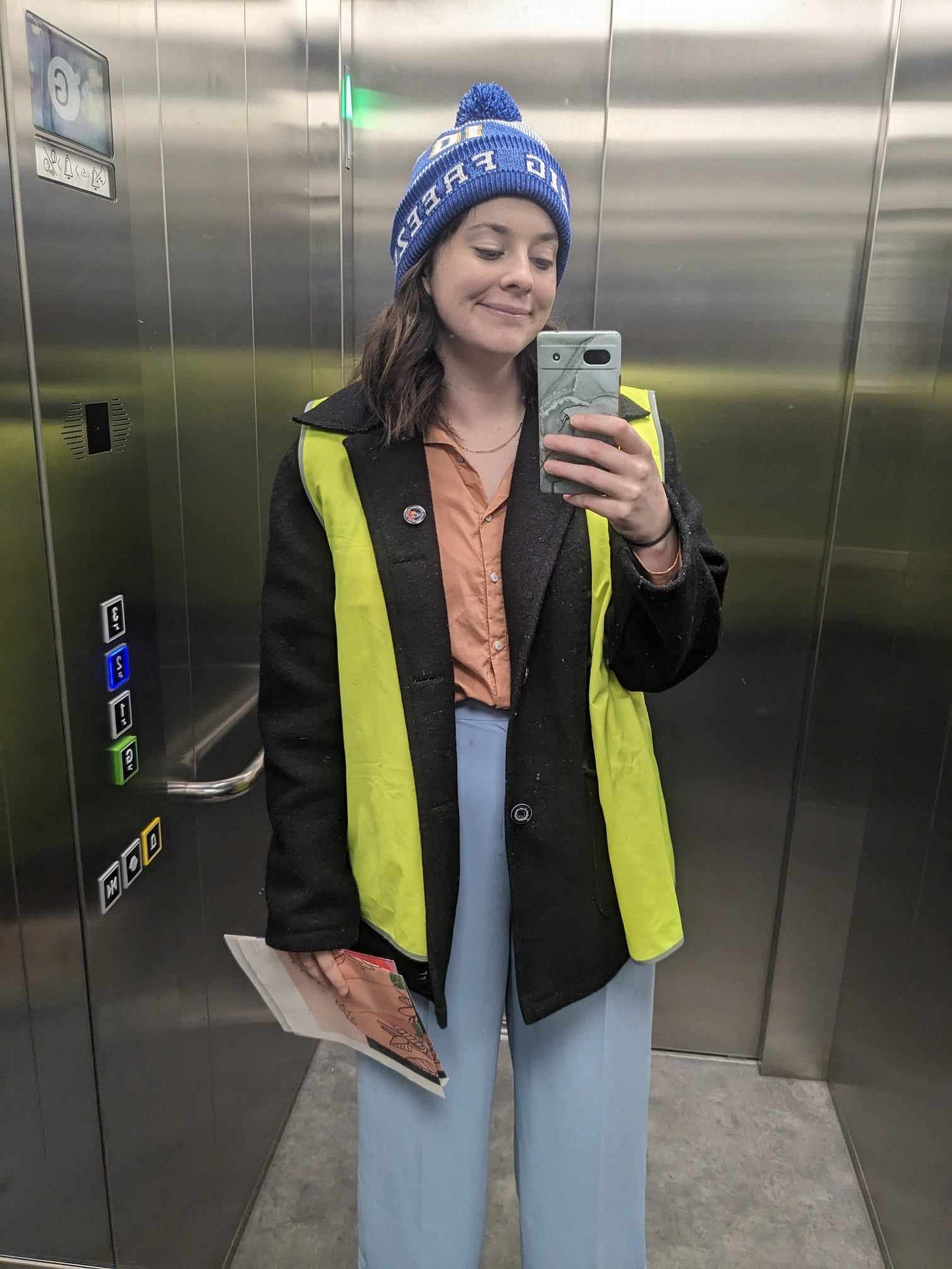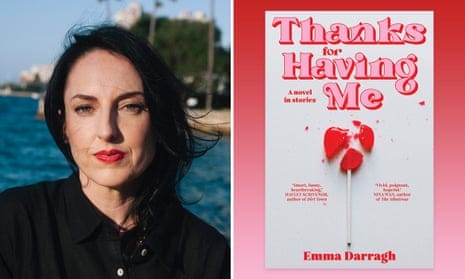Hey reader,
It’s been a minute.
If you’re a teacher, like me, you’ll understand the earnest yet foolish ambition I gripped onto in attempting to start a Substack at the crest of Term 2 amidst interminable stacks of marking and the agonising grind of end-of-semester reports. Idiot.
If you’re not an educator - good for you.
Motherhood, caregiving and the cycle of feminine responsibility emerge as themes for this edition.
In approaching my thirties, I think about these ideas daily. Does every eldest daughter feel the weight of parentification? Will I come to resent my mum one day or find a sense of peace in returning the care she’s offered me throughout my life? Will I be a good mother? Will I be a mother at all?
While I ponder these philosophical questions, enjoy this recap of my recent ventures.
Peaks
Have you ever heard of a glimmer? It’s a neurological concept from polyvagal theory. Basically, it’s the exact opposite of a trigger - some kind of cue, either internal or external, that brings one back to a sense of joy or safety.
One of the perpetual glimmers - peaks - of my life is my niece. Let’s call her Elsie.
Elsie’s my best friend Ash’s daughter. She has the same toothy smile and infectious laugh that echoes in my favourite childhood memories. She’ll be two in October.
Here are some of our glimmers.
In summer, we lie in the grass of Ash’s backyard after a trip to the beach. Cans of coke rest on tufts of green just out of the toddler’s reach. Elsie clambers over me, her personal climbing frame. Her sticky fingers fiddle with my earrings and grab at my sunnies. As I squint into the sun, she says her first word meant just for me: “Eyes!”
In winter, Elsie’s curls tumble out from her crocheted beanie on our trip to the park. There’s a trail of snot dripping from her nose, which I happily dab at with my sleeve. I follow as she waddles along the path in her pink coat, singing to herself. When a jogger pads past on the running track, she stops abruptly and cheers, “YAAYYYY!!” He grins.
After a personal tragedy a few months ago, I stayed in Ash’s spare room for a few nights. As I sit cross-legged on the lounge room floor groggily sipping a cuppa, Elsie stops playing. Quietly, she settles in my lap and nuzzles into my chest, leaning in for a long, tender hug. I release a breath I didn’t know I was holding. She squeezes tighter.
Troughs
Bundled in my puffer jacket and Big Freeze beanie in the *new* school elevator, I shuffle over and adjust my backpack as a colleague from the next office over squeezes in. He’s tall and handsome and his face is way too symmetrical, so I concentrate on the contents of his open shoulder bag reflected in the mirror behind us.
As he reaches over to press the button for the ground floor, I curse the architect for failing to install speakers for elevator music and prepare to marinate in silence for the slow descent.
I much prefer solo elevator rides where I can snap a quick selfie of my #ootd and post it to my Close Friends Story, but before I can whip out my phone and feign the emergence of a Very Important Email, the inevitable end-of-term question punctures the stuffy air.
“So, any plans for the break?”
I prod my earring in a nervous tick, curl my hair around my finger.
It would be so easy to lie or give a non-answer:“Oh, not much. Just resting,” or “I’m seeing family. How about you?”
But instead, the truth spills out in a clumsy, crackly admission, reverberating off the metallic walls of the lift.
“I’m having surgery.”
The doors slide open.
~
It’s not the first procedure I’ve had to support my chronic pain and I scheduled it specifically for the break so I’d have the time and space to recover, but - in short - health issues fucking suck.
Overall, you could say it was a success. The opioids made me smiley-happy. I waved hi to everyone in the recovery bay, telling the nursing staff they were “doing a great job,” and left slurred voice notes to mates of me singing About Damn Time. Relevant now that I think about it.
But in response to the bodily invasion, my muscles have gone on protest. It feels like tiny angry people have taken up camp in the fibres between my bones. They’re wearing those spikey athlete shoes and stamping furiously in revolt, stabbing picketed signs into my joints, gluing my veins together.
A friend highlighted how fucked it is we, as women, feel the need to put off personal health stuff for the holidays. Putting others first. Confining discomfort to a set time period. Maybe slipping out the truth in the elevator can be a tiny protest of my own - taking up a bit of space for a second instead of smoothing it over with pleasantries. Go me.
Passages
This month my book club read Thanks for Having Me by Emma Darragh, the first fiction title from Joan Press.
Amy Lovat, author of Mistakes and Other Lovers, describes the short story collection here:
'A mesmerising narrative of family, grief, guilt and motherhood, told through several generations of women in stories that intertwine to reveal truth and sorrow. With startling clarity, Emma Darragh's sharp prose hones in on the minutiae of Australian life in the suburbs — sometimes eerie, other times tender, remarkably relatable. Thanks For Having Me is brilliant, funny, sad and disquieting — I loved it.'
Generously, Darragh offered her time to actually join us on our monthly Zoom session, answering all our nerdy questions about her writing process, themes and characterisation.
The text started as an assignment for her Creative Writing degree, and the protagonist, Vivian, just kept showing up in different pieces. Eventually, her mother, Mary-Anne, emerged as a grounding counterpart and Evie, Vivian’s daughter, was born, allowing a modern and youthful perspective buoyed by references and advice from the author’s own daughter.
The collection became the creative focus of Darragh’s final academic project, exploring the tension found in the gaps between women’s stories: the push and pull of motherhood and personal identity; the nuances between generations; the repeating of history. It reminds me of Stories We Tell, a Canadian documentary by Sarah Polley, where she uses an interview style to examine what emerges in the conflicting memories of her deceased mother held by her family and friends.
During the chat, Darragh talked about experimenting with narrative voice, tricks for getting out of a writing slump (hence my sudden resurgence on this platform) and some really honest and thought-provoking truths surfaced about motherhood ambivalence, generational trauma, and the “burden” of caring for our parents as they mature.
There’s something wildly ambitious about stringing together a cycle of short stories from three different women, in a thousand different narrative tenses, at various ages, in oscillating eras, but Emma Darragh pulls it off - brilliantly. Highly recommend.
Thanks for trekking with me on this edition of the Sierra. If you’ve made it this far, let me know what you’d be interested in reading about next and take care til our next journey.








LOVED this issue, Emma!! Hope those tiny angry creatures take off their spiky shoes and give you some reprieve soon xxx
Beautiful words today Emma, all the best with your recovery. 🙏